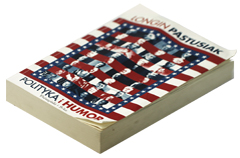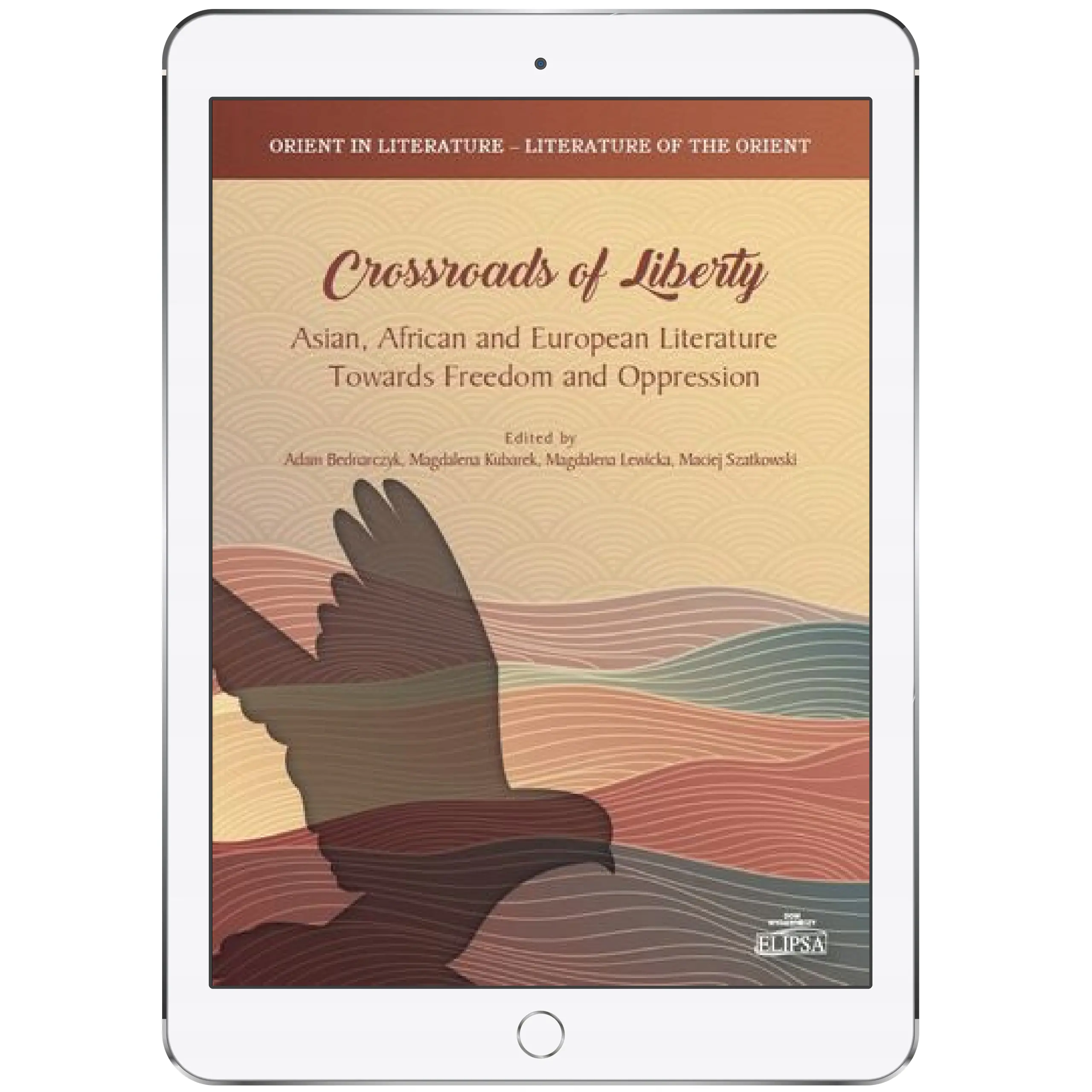Stan książek
Nasze książki są dokładnie sprawdzone i jasno określamy stan każdej z nich.






Nowa
Książka nowa.





Używany - jak nowa
Niezauważalne lub prawie niezauważalne ślady używania. Książkę ciężko odróżnić od nowej pozycji.





Używany - dobry
Normalne ślady używania wynikające z kartkowania podczas czytania, brak większych uszkodzeń lub zagięć.





Używany - widoczne ślady użytkowania
zagięte rogi, przyniszczona okładka, książka posiada wszystkie strony.
Crossroads of Liberty
DODAJ DO LISTY ŻYCZEŃ
Masz tę lub inne książki?
Sprzedaj je u nas
This compilation presents a selection of papers that were initially delivered in English at the fifth edition of the International Conference on Orient in Literature, Literature of the Orient (OLLO). This event was held from March 28 to March 29, 2019, at the Faculty of Languages of Nicolaus Copernicus University in Toruń.
The book gathers 20 articles offering diverse perspectives and methodologies, organized alphabetically due to the varied nature of the content and the depth of each analysis. Many articles focus on contemporary literature from the mid-19th century onwards, featuring authors from various African countries, including Egypt, Nigeria, and Somalia, as well as Asian regions such as Kuwait, Qatar, Iranian Azerbaijan, India, China, and Japan. Two pieces delve into ancient and early medieval writings, with Iwona Milewska examining narratives from the Indian epic Mahabharata and Arzu A. Sadykhova analyzing Arabic poetry.
Additionally, four articles investigate the Western perception and depiction of the Orient. Notably, Zofia Litwinowicz-Krutnik's contribution centers exclusively on film, while Maria Szafrańska-Chmielarz's study also includes cinematic elements. Despite occasional exceptions, these works generally reveal how their sources replicate the stereotypical, distorted portrayals of the Orient, as highlighted in Edward Said's influential work and later postcolonial analyses on (Neo-)Orientalism, Exoticism, and (Ethno-Racial) Othering. Interestingly, even non-colonial perspectives, such as those of a French colonial official's spouse in Morocco (explored in Małgorzata Sokołowicz's article on A.-R. de Lens) and Polish travelers to the Orient (as discussed in Anna Kołos's article), adopted similar clichéd, binary worldviews.
Wybierz stan zużycia:
WIĘCEJ O SKALI
nowa
11.39 zł
jak nowa

- niezauważalne lub prawie niezauważalne ślady używania
- książkę ciężko odróżnić od nowej pozycji
Wysyłka w ciągu 24h + czas dostawy
dobry
widoczne ślady używania
This compilation presents a selection of papers that were initially delivered in English at the fifth edition of the International Conference on Orient in Literature, Literature of the Orient (OLLO). This event was held from March 28 to March 29, 2019, at the Faculty of Languages of Nicolaus Copernicus University in Toruń.
The book gathers 20 articles offering diverse perspectives and methodologies, organized alphabetically due to the varied nature of the content and the depth of each analysis. Many articles focus on contemporary literature from the mid-19th century onwards, featuring authors from various African countries, including Egypt, Nigeria, and Somalia, as well as Asian regions such as Kuwait, Qatar, Iranian Azerbaijan, India, China, and Japan. Two pieces delve into ancient and early medieval writings, with Iwona Milewska examining narratives from the Indian epic Mahabharata and Arzu A. Sadykhova analyzing Arabic poetry.
Additionally, four articles investigate the Western perception and depiction of the Orient. Notably, Zofia Litwinowicz-Krutnik's contribution centers exclusively on film, while Maria Szafrańska-Chmielarz's study also includes cinematic elements. Despite occasional exceptions, these works generally reveal how their sources replicate the stereotypical, distorted portrayals of the Orient, as highlighted in Edward Said's influential work and later postcolonial analyses on (Neo-)Orientalism, Exoticism, and (Ethno-Racial) Othering. Interestingly, even non-colonial perspectives, such as those of a French colonial official's spouse in Morocco (explored in Małgorzata Sokołowicz's article on A.-R. de Lens) and Polish travelers to the Orient (as discussed in Anna Kołos's article), adopted similar clichéd, binary worldviews.












